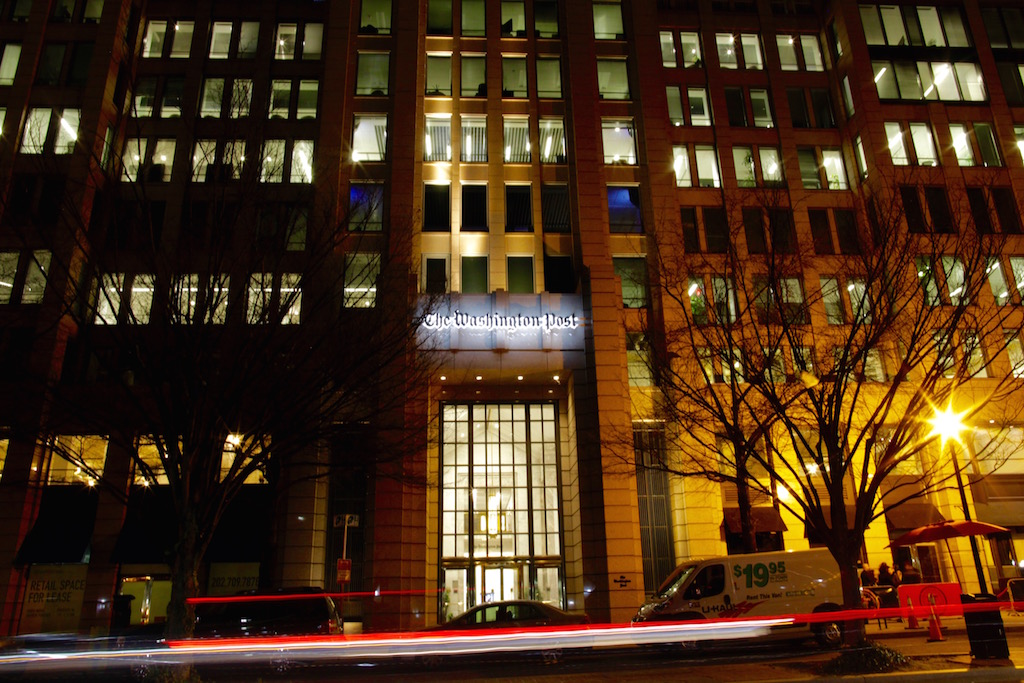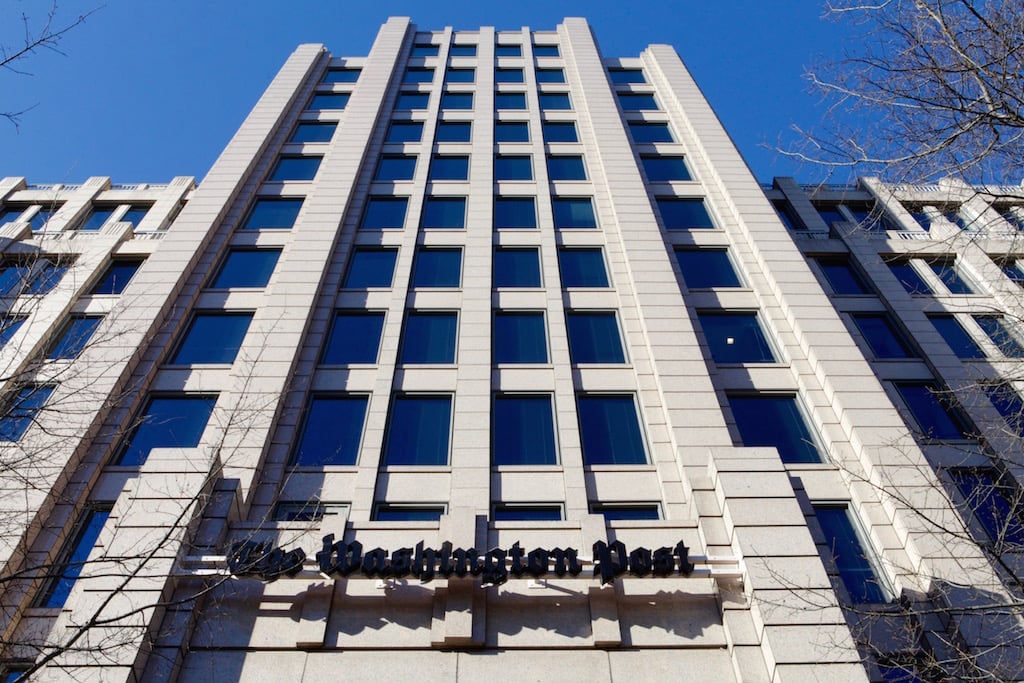The Washington Post suspended its media reporter Paul Farhi for five days without pay in March after he reported that the publication would take bylines and datelines off stories filed by staff in Russia. The move, Farhi reported on Twitter, would counter censorship and threats against journalists that Russian President Vladimir Putin instituted after Russia invaded Ukraine in February.
Some internal news: In response to Putin’s threats against reporters in Russia, the @washingtonpost will remove bylines and datelines from stories produced by our journalists in Russia. Goal is to ensure staff’s safety.
Been around a while. Never seen anything like this.
— Paul Farhi (@farhip) March 5, 2022
In a complaint filed in US District Court on Friday, the Washington Baltimore News Guild says managing editors Krissah Thompson and Tracy Grant (who has since left the publication) instituted the suspension. Thompson and Grant, the suit says, said that Farhi “jeopardized the safety of a colleague as well as the ability of The Washington Post to report in a foreign country” in what the Guild characterizes as “accurately reporting internal Post news in the course of his duties as a media reporter.”
Farhi, who has worked for the Post since 1988, regularly reports on his own workplace. He broke the news in 2013 that Jeff Bezos would buy the paper and often tweets about internal news. Nonetheless, a copy of Farhi’s suspension letter from Thompson and Grant that Washingtonian obtained claims that he violated the company’s social media policy by tweeting about the byline decision.
The letter says Farhi learned of the new policy in a company Slack channel used by its media-reporting team. Washingtonian has learned that the news appeared in other Slack channels viewed by hundreds of people as well.
The letter says Post management expected Farhi, upon his return from suspension, to “demonstrate impeccable professional judgment and specifically to never act in a way that jeopardizes the safety of your colleagues or makes it harder for them to do the work of The Post.” Future lapses, the letter warned, could result in “increased disciplinary action, up to and including the termination of your employment.”
Reached by phone, Farhi declined to comment. The Washington Post has not returned requests for comment.
The Post refused to address Farhi’s suspension in arbitration as the union’s contract requires, the action says. The newspaper told a union lawyer by email in August that because the company’s contract with the Guild expired June 30, it had no obligation to address the grievance.
The action says the paper also refused to go to arbitration over its June 9 dismissal of reporter Felicia Sonmez. The Guild says the expiration of the Post’s contract “does not relieve the Post from its contractual obligation to arbitrate grievances filed prior to expiration.”
In a statement, the Post Guild says “All Washington Post employees have a right to contest disciplinary action by filing a grievance and presenting their case before an arbitrator. This is one of the essential protections guaranteed by our Guild contract. We’re deeply disappointed by the Post’s unwillingness to respect that right or engage fairly with the Guild on disciplinary issues, here and at the bargaining table.”
The publication and the Guild are currently renegotiating a new contract. The two sides have met three times, and a new collective bargaining agreement is likely to take quite a while to negotiate. (The Washington Baltimore News Guild also represents Washingtonian’s editorial staff in its contract negotiations with management.)
The day after Farhi’s tweet, the Post acknowledged its accuracy. It told the Hill it was “continuing to seek clarity about whether Russia’s new restrictions will apply to international news organizations. For now, to help protect our Moscow-based journalists, we will exercise caution by removing bylines and datelines from certain stories.”
The Post gave what appears to be the same statement to Washington Post reporter Kelsey Ables on March 5 as well. Paul Farhi, the story notes, “contributed to this report.”
This story has been updated.




















